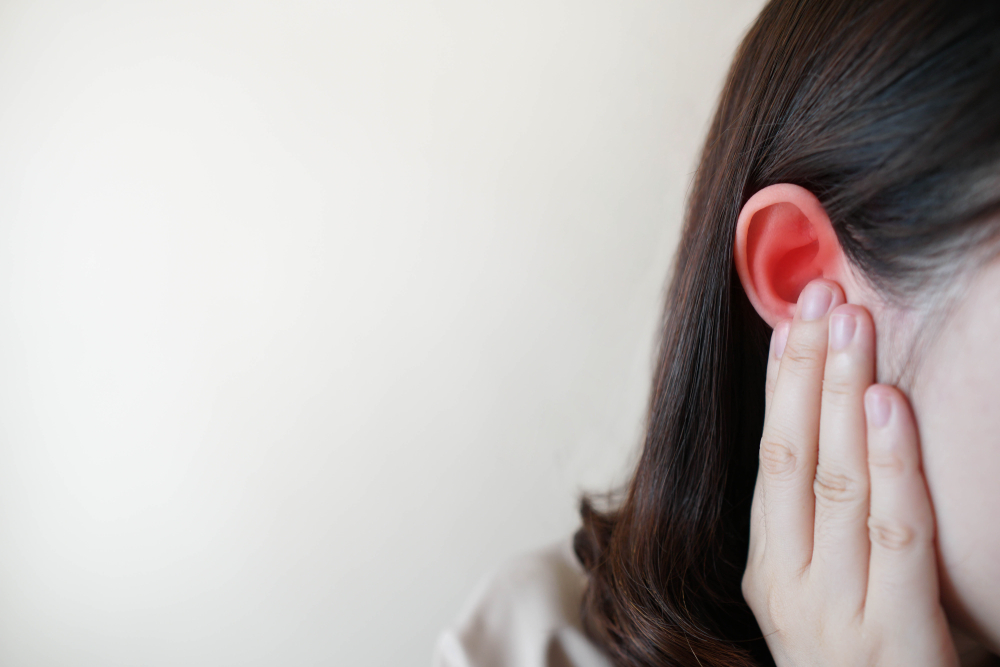 If you’ve ever experienced ringing or other sounds in one or both ears, you are likely familiar with tinnitus. Ringing in ears is a common concern that is typically caused by one or more underlying conditions. The sounds that you hear with tinnitus aren’t caused by any external sounds, and other people around you won’t be able to hear it.
If you’ve ever experienced ringing or other sounds in one or both ears, you are likely familiar with tinnitus. Ringing in ears is a common concern that is typically caused by one or more underlying conditions. The sounds that you hear with tinnitus aren’t caused by any external sounds, and other people around you won’t be able to hear it.
Tinnitus can be frustrating to live with and may start to impact one or more areas of your life. You may even wonder if some of the other physical concerns you’re experiencing are related to your tinnitus.
For many, tinnitus can improve by addressing and treating the underlying cause.
An understanding of tinnitus
Those who experience tinnitus typically describe it as a ringing sound in one or both ears, even without an external sound being present. The ringing may be the most commonly experienced sound, but tinnitus can also result in other phantom sounds in your ears. This may include a clicking, hissing, buzzing, roaring, or humming sound. There are some instances where people hear sounds that they can only describe as music.
The sounds that you hear with tinnitus can vary in pitch. It could be a low roaring sound or a high-pitched squealing sound. For some people, the sounds of tinnitus can be so loud and overwhelming that they interfere with the ability to focus or even hear external noises.
Tinnitus may come and go for some, while others may experience symptoms all of the time. Even those who live with tinnitus periodically describe it as being frustrating.
Causes of tinnitus
Just what causes tinnitus? What might be responsible for the tinnitus that you’re experiencing? There are several things that could result in tinnitus, so it’s important to work with medical professionals so that you can not only get to the bottom of the symptoms that you’re having but also work towards the right type of treatment plan.
Some of the things that can lead to tinnitus include the following:
- Exposure to loud noise, such as what you may experience at a concert or sporting event.
- Certain types of medications, including medications like aspirin and ibuprofen.
- A head or neck injury. Some may also experience tinnitus if they have a history of jaw clenching or grinding their teeth.
- Ear infection or a blockage in the ears due to a buildup of earwax.
- High blood pressure, anemia, migraines, thyroid disorders, and certain other medication conditions have been linked to ringing in the ears. Meniere’s disease, which is a disorder of the inner ear, can also result in tinnitus, along with balance concerns and loss of hearing.
- Hearing loss, whether due to being exposed to loud noises or aging, has a strong connection with tinnitus.
Even with a number of potential contributing factors to tinnitus, some people develop it without a known cause.
Connecting hearing loss and dizziness
There is a strong connection between the ears and our ability to balance. If you’re experiencing any type of hearing loss and dizziness, there could be a correlation. This is particularly the case if you have Meniere’s disease, which is an inner ear disorder. It can lead to tinnitus, hearing loss, and feeling like there’s a fullness in your ear. Certainly, the feeling of clogged ears and dizziness symptoms can go hand-in-hand, but if you’re experiencing the other symptoms of Meniere’s, it’s more likely to be the diagnosis that your healthcare provider comes to. Meniere’s typically only affects one of your ears, but there have been reports of it being an issue in both ears for some.
Dizziness that is connected to your inner ear may make you feel a sensation of whirling or spinning, you may also feel lightheaded or unsteady on your feet. If you’re experiencing ringing in ears, dizziness, pressure in head, and have a degree of hearing loss all at the same time, you may wonder if they are all connected.
Anything that impacts your inner ear, whether Meniere’s disease, mild hearing loss, or a sinus infection, can impact how you feel. Your dizziness could be attributed to one of these concerns. And the tinnitus that you’re experiencing could be pinpointed as being connected to these same concerns.
If left untreated, it’s likely that your symptoms will only get worse over time. Even if your tinnitus and other symptoms are caused by a temporary condition, such as a sinus infection, it’s important to get checked out. You may have also been living with a gradual onset issue for so long that it now feels like a version of normal to live with tinnitus and dizziness. It can even feel like your very own version of normal to live with and accept mild to moderate hearing loss. Many just attribute it to just being a part of growing older or perhaps having enjoyed one too many loud concerts in their youth.
If you’ve been experiencing any type of loss in hearing, ringing in the ears, and dizziness, you should make an appointment for an evaluation. The sooner that you uncover the cause of your symptoms, the sooner you can find the right solution.



Leave a Reply